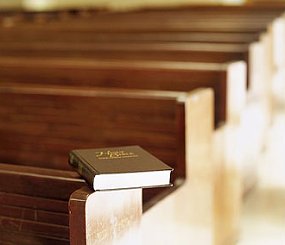Who are you? Do you believe you were created for a purpose or was it all just chance? This week on Let My People Think, Ravi Zacharias looks at how we were created for significance and what our purpose really is…
Ravi Zacharias is one of the few contemporary radio preachers I still listen to, primarily by podcast. We need more like him.
 Still, in my listening to his two-part series recently rerun, I feel even philosopher/ apologist Zacharias seems ill-equipped to explain purpose amid our societal/cultural norms. The “how to live out that purpose practically” eludes even him. (Perhaps it’s because the talk was from 1992. I wonder how Zacharaias might speak about purpose in a more digital age.)
Still, in my listening to his two-part series recently rerun, I feel even philosopher/ apologist Zacharias seems ill-equipped to explain purpose amid our societal/cultural norms. The “how to live out that purpose practically” eludes even him. (Perhaps it’s because the talk was from 1992. I wonder how Zacharaias might speak about purpose in a more digital age.)
Purpose in life is an issue that I think bubbles under the surface of everyone’s thoughts, yet it is a question the contemporary Church in America fumbles.
Here’s what I see:
- By reflex, many Christians will state their purpose in life is to glorify God in everything they do, but then they wonder why it is that what they do seems so insignificant and self-serving.
- Many Christians struggle to make any sense of their own mission within the Church when they compare it against their actual day-to-day living.
- Many Christians have been taught that God has a perfect purpose for their lives, what He created them to do that comprises part of “the abundant life,” yet this purpose eludes them, which means the abundant life does also.
- That disconnect causes many to reason that if the life they have now reflects God’s purposes for them perfectly, it casts doubt on how faithful God has been to bring them into that promised life of fulfilling purpose. This leads to much of our modern angst in the Church.
Let’s be honest here. It’s hard to believe that assembling widgets on a factory line, going home exhausted after 10 hours, rushing perpetually here to there, and always having some expectation on you that you can’t fulfill is in any way reflecting the love of God for you through meaningful purpose.
Nothing saddens me more than to hear Christian leaders not only concede to this kind of industrial-revolution-inspired life but actually laud it. Doing so renders terms such as underemployed meaningless. I believe depression is rampant for the very reason that people are not finding any purpose to their lives. They labor, they consume, and then they die, having contributed little to the world.
How is it that the Church here concedes to that kind of drudge life and often holds it in high regard? Why are Christian thinkers and leaders not FIGHTING against the thinking, the systems, that create purposelessness?
Strangely, instead of working to change the way the system works, all we can do is point out that it’s broken. Then we teach some anemic coping mechanisms that we hope will work, at least until the next Sunday, when we will offer different, “better” ones. But we deceive ourselves, because men and women cannot keep adding tricks to deal with a purposelessness that shouldn’t exist in the first place.
Does a person doused in gasoline and set ablaze want to receive either spiritual or secular suggestions on how to cope with being on fire? No, they need the flames extinguished, folllowed by emergency medical care. Yet most people are being burned by expectations and sociocultural conceptions of what their purpose should be. Who is calling out and saying that this experiment has failed? Shouldn’t that be the Church? Shouldn’t we be actively extinguishing false ways of living that create purposelessness and tending to the needs of those burned by the system?
The Church today in the West seems incapable of taking on systems of any kind. We simply are not up for that battle. But we should be. Instead, we tend to settle and make peace. Perhaps we, as a whole, have forgotten our purpose.
Can we at least start small? Just as each person in a church has God-given spiritual gifts that church leaders should be partnering to identify, I believe that each of us has not only a general purpose in life but a specific one. We used to name that a “calling.” If a person’s spiritual gifts are given by God to encourage and strengthn the Body, is not that person’s calling in line with those gifts? And is not the Holy Spirit able to help others to help us discover what God would have for us post-conversion?
I believe life in 2015 needs an infusion of purpose. If God has a wonderful plan for our lives, are we really living that way? Or are we lost at sea, hoping to crash on the shore of some future island oasis that seems so very far away?

 “‘And in the last days it shall be, God declares, that I will pour out my Spirit on all flesh, and your sons and your daughters shall prophesy, and your young men shall see visions, and your old men shall dream dreams…'”
“‘And in the last days it shall be, God declares, that I will pour out my Spirit on all flesh, and your sons and your daughters shall prophesy, and your young men shall see visions, and your old men shall dream dreams…'” The lament we hear from many sectors in American Christendom is over the increasing number of people who shun church.
The lament we hear from many sectors in American Christendom is over the increasing number of people who shun church.